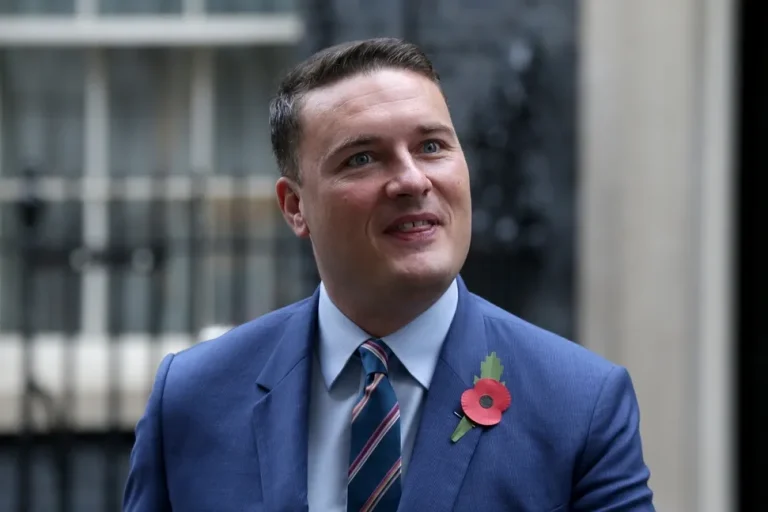More than £2bn will be spent on improving healthcare infrastructure in deprived areas of England, the UK government has promised.
Health and social care secretary Wes Streeting announced the funding pledge today (25 June) during a speech in Blackpool.
“For too long now, those in the most deprived, rural and coastal areas have struggled to access the healthcare services they need”
Nicola Ranger
Mr Streeting said £2.2bn would now be reinvested in areas of greatest need. This money, he explained, was previously set aside for deficit support for NHS trusts and integrated care boards, something he planned to phase out entirely from 2026-27.
The health secretary said that NHS trusts and integrated care boards (ICBs) cutting “wasteful spending” and tackling deficits meant the £2.2bn worth of deficit support money had been “freed up”.
The money would now go towards staff, medicines, “new technology” and equipment in areas where they are most needed.
Regions benefitting from this new funding would include deprived coastal towns, like those in the North West near where Mr Streeting spoke, and other areas of need with low average incomes and poor access to quality primary and hospital care.
“Those in greatest need often receive the worst quality healthcare,” Mr Streeting said.
“It flies in the face of the values the NHS was founded on.
“The circumstances of your birth shouldn’t determine your worth. A core ambition of our ten-year plan will be to restore the promise of the NHS, to provide first class healthcare for everyone in our country and end the postcode lottery.”
This announcement was the preview of the UK government’s upcoming NHS 10-Year Health Plan.
Due to be fully unveiled later this month, the plan is expected to outline how Mr Streeting hopes to achieve three “key shifts” for the health service: moving from tackling sickness to promoting prevention, from analogue to digital and from hospital to community.
Earlier this week, the government announced it would be rolling out home testing kits for Human papillomavirus (HPV) as part of the 10-year plan for the health service.
The full plan has yet to be published. However, a draft copy reportedly seen by the Health Service Journal was described by its editor Alistair McLellan as an overly ambitious “mess”.
During his Blackpool speech today, Mr Streeting also outlined how the plan would address “inequalities in GP services” across England by reviewing the way GP funding is allocated.
He added: “Thanks to the reforms we’ve made to bear down on wasteful spending, we can now invest the savings in working class communities that need it most.
“Where towns have the greatest health needs and the fewest GPs, we will prioritise investment to rebuild your NHS and rebuild the health of your community.”
The government promised that “working-class areas” would receive their fair share when the GP contract is next renewed, taking evidence from the Advisory Committee on Resource Allocation and the British Medical Association, the UK’s largest medical doctor union.

Nicola Ranger
Health leaders broadly welcomed today’s announcements, but reiterated the need for investment in the workforce and other areas.
Royal College of Nursing general secretary and chief executive Professor Nicola Ranger said: “For too long now, those in the most deprived, rural and coastal areas have struggled to access the healthcare services they need, so any efforts to tackle this are a step in the right direction.
“However, long waits for care and poor health are not just driven by a lack of GPs.
“For this to be truly successful, the new NHS plan must include significant investment across all areas of the community nursing workforce – including prevention and public health nursing services – which have seen numbers decline and funding reduced, particularly in the most deprived areas.”
Professor Ranger said nursing staff were “ready” to make the 10-year plan work, but called on the government to “rebuild the whole workforce” instead of “making savings and moving funds around”.
NHS Providers chief executive Daniel Elkeles similarly praised Mr Streeting for focusing on health inequalities.
However, Mr Elkeles said: “We look forward to seeing the details of any new funding approach in the 10-Year Health Plan.
“They will need to reflect the ongoing financial and operational pressures trusts face as they work to ensure the quality and safety of care.
“Our recent survey highlighted trust leaders’ concerns over the impact of ongoing financial pressures.”
Mr Elkeles added that tackling health inequalities required investment in “wider societal issues” such as education, housing and transport.
“It’s vital that we see a concerted and coordinated push across national and local government to deliver better health for all,” he said.
More on government healthcare reforms

